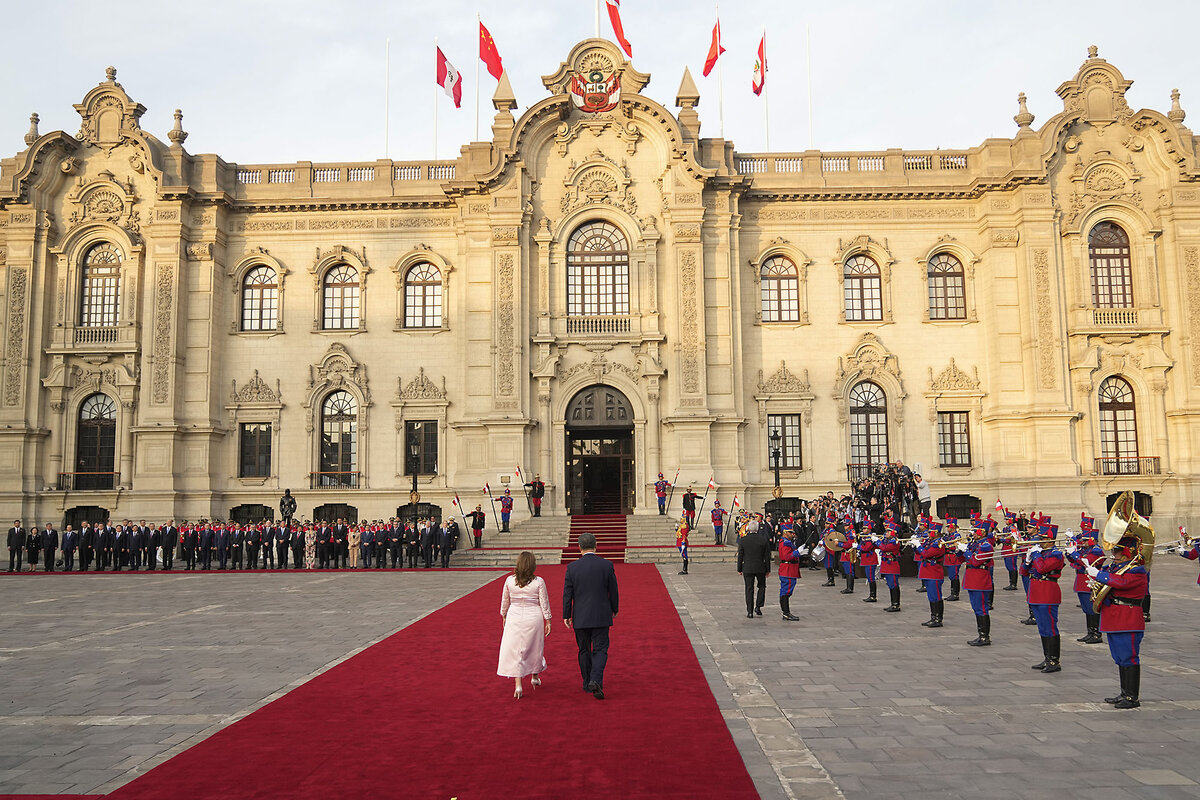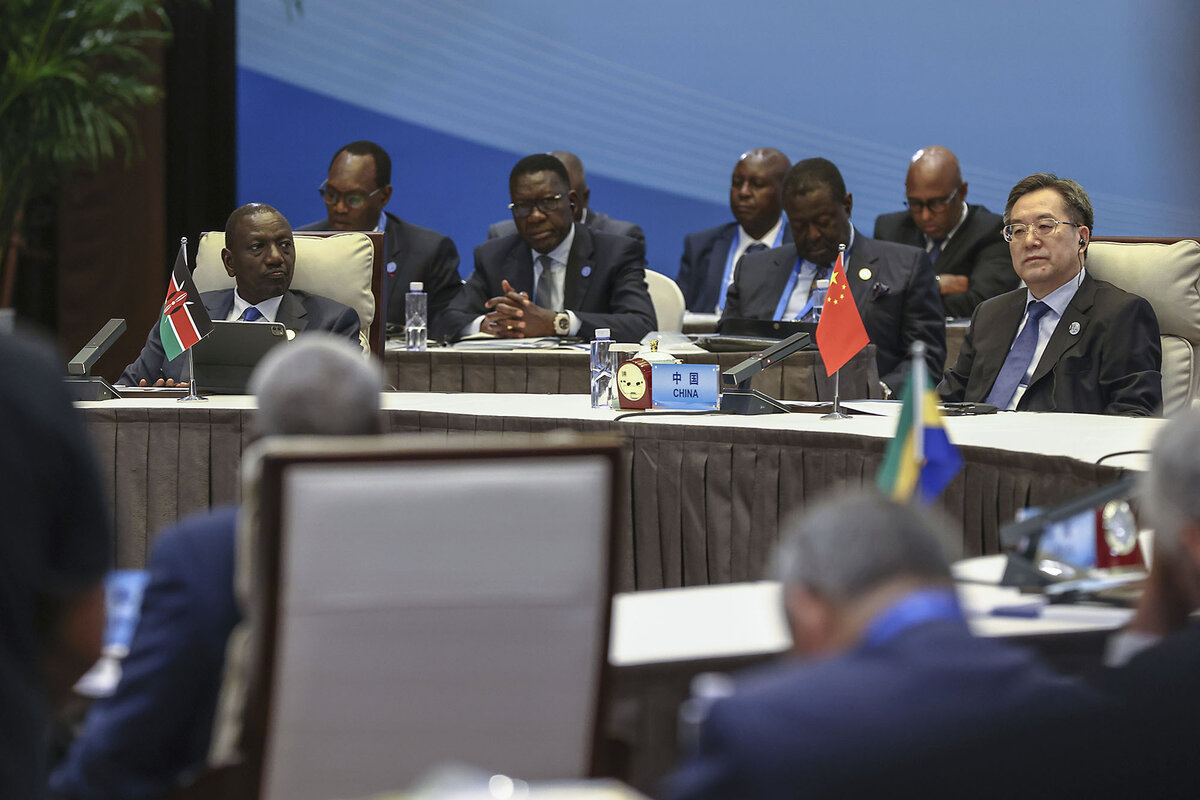China eyes opportunities as US scales back humanitarian aid
Loading...
| Seattle
For Li Qiang, the Trump administration’s sudden freeze on foreign aid could not have produced a more striking win – for China.
By cutting off funds for the National Endowment for Democracy, the U.S. government has severely curtailed work by civil society groups such as Mr. Li’s China Labor Watch (CLW). The New York-based nongovernmental organization has investigated violations of workers’ rights in China for 25 years.
“The U.S. is really battling itself ... and it’s really helping China,” Mr. Li says, when it weakens groups that have long irritated Beijing by exposing information censored in China.
Why We Wrote This
While Chinese rights defenders are packing up for lack of U.S. financial aid, Beijing is planning to fill the global vacuum left by USAID’s evisceration, preparing to take Washington’s place in the soft power landscape.
More broadly, the slashing of U.S. foreign assistance and the aid workforce – including the Trump administration’s move Sunday to eliminate 1,600 jobs at the United States Agency for International Development – represents a boon for China’s global influence, say activists, experts, and officials.
“U.S. funding has been such an important bulwark for creating [democratic] resilience to Chinese influence,” says Sarah Cook, an independent China expert. “That’s really a big loss.”
The United States has long bolstered its soft power as the world’s biggest source of foreign assistance. Before the freeze, USAID provided about $40 billion a year to projects around the world designed to advance democracy, counter authoritarianism, alleviate hunger, and boost health, among other goals.
By retreating from such work, Washington risks leaving a vacuum that China will move to fill. In the longer run, the move could also undermine trust in U.S. leadership, some experts warn.
“China goes into the empty spaces, always,” says Mathieu Duchâtel, director of International Studies at the Institut Montaigne, an independent think tank in Paris. “They will seize the opportunity.”
Mr. Li has already experienced this personally.
When President Donald Trump ordered the foreign aid freeze last month, Mr. Li could no longer pay CLW’s seven-person staff and had to halt its work. About 90% of CLW’s $800,000 budget comes from the U.S. government, he says.
Soon, Mr. Li began receiving phone calls from a Chinese official in Beijing, offering to help him to obtain alternative funding. “They contacted me a lot of times,” he says, “but I didn’t respond.” He knew the price for such support: an end to CLW’s criticism of the Chinese authorities.
U.S. national security
Created in 1961 by President John F. Kennedy, in part to counter the Soviet Union, USAID has also engaged in national security work, says one employee who asked not to be identified for fear of retribution. Beyond the agency’s program to monitor Chinese state-owned enterprise investments worldwide, “USAID is intimately involved in ... countering China, Russia, Iran, the DPRK [North Korea], global criminal syndicates, and terrorist cells around the world,” he says.
“The effort to eliminate USAID is throwing the baby out with the bathwater.”
As China pursues its long-term strategy to displace the U.S. and reshape the world order, the Trump administration’s retreat from foreign aid gives credence to Beijing’s narrative: China is stable and benevolent, while Washington is unreliable.
“One manifestation of ‘America First’ is the tendency towards neo-isolationism, such as the U.S. no longer being willing to provide military or economic aid,” a top Chinese expert in U.S. affairs told the Hong Kong-based South China Morning Post last month.
“Could that potentially give us more room to maneuver?” wondered Yuan Zheng, deputy director of the Institute of American Studies at the Chinese Academy of Social Sciences.
Africa is one region offering China fresh opportunities.
Last fall, Beijing hosted a China-Africa summit at which Chinese leader Xi Jinping pledged that China would contribute $50 billion in loans and investment to boost economic and infrastructure development in Africa over the next three years.
Damage to soft power
While China is unlikely to replace the U.S. aid grants, it may provide new loans, says Deborah Bräutigam, director of the China Africa Research Initiative at Johns Hopkins University’s School of Advanced International Studies.
“The USAID leaving creates a gap for countries to be looking for other ways they can strengthen their economies,” and some will turn to China, says one senior USAID contractor with extensive experience in Africa.
“They will say, ‘The West gave up on us,’” he says, speaking on condition of anonymity to freely voice his views. “It’s going to do an enormous amount of damage to U.S. soft power.”
On Sunday afternoon, USAID employees were among tens of thousands of federal workers who received a government email with the subject line reading “What did you do last week?”
For the aid agency, the email heralded this week’s massive reduction of the USAID workforce.
“It’s not that we are cutting waste, fraud, and abuse – we are undermining the foundations of the most successful postwar infrastructure ever built,” says one USAID employee. “The abandonment of that will cost us dearly, because we will have to claw it back from China later.”
Still, some experts view a silver lining in the current changes, however jarring. The postwar foreign aid system created dependencies in developing countries, and needs reform, says Dr. Bräutigam. “Maybe this is a phoenix moment,” she says. “Out of the ashes comes something better.”








